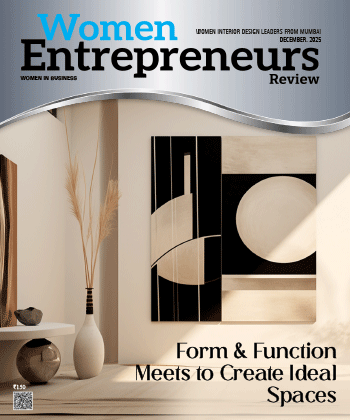Leaders

Neelima Misra: From Struggling Student to CEO: Her Journey in IT and the Importance of Ethical AI
Neelima Misra
CEO, Daastek
The story of Neelima Misra who refused to let low academic expectations and doubts about her abilities hold her back from pursuing her dreams is truly inspiring. Through hard work and a deep passion for data and AI, Neelima overcame cultural and language barriers, travelled to over 50 countries, and gained a wealth of experience in various industries. Her journey began with a vision to create something new and innovative. With a passion for technology and a desire to make a difference, Neelima founded DaasTek, a company that provides cutting-edge solutions for digital technology.
As a CEO and mentor to many start-ups, Neelima believes that cultural awareness, effective communication, and trust building are key to any business. While the power of AI and Machine Learning is growing, Neelima stresses the importance of ethical practices and ensuring that technology is used for the betterment of society.
In the end, Neelima’s story is a testament to the power of perseverance and determination. Her journey serves as an inspiration to aspiring entrepreneurs everywhere, reminding us that with hard work, dedication, and a clear vision, anything is possible.
In a recent interview with Women Entrepreneur Magazine, Neelima opened up about her incredible professional journey and the challenges she faced along the way. Here are choice excerpts from the conversation.
What are some of the most significant aspects of your life and professional journey.
My upbringing in an Indian household where education was a top priority has contributed a lot my professional journey. With a family filled with engineers and economists, I struggled academically, and my parents had low expectations for my future.
Despite this, I always believed I have something important to contribute to the world. My drive for financial independence led me to pursue a career in the IT field, where I encountered many great individuals who mentored me to think out of the box.
Eventually, I decided to start my own company at the age of 42. With over two decades of experience in the field, I was well-prepared to navigate the challenges of starting a business. I learned that age is just a number and it's never too late to pursue your dreams.
Looking back on my journey, I'm proud of the progress I've made and the obstacles I've overcome. It just goes to show that with determination, hard work, and a belief in yourself, anything is possible.
Take us through your early educational journey. What drew you towards the field of digital technology?
I always had a deep-seated desire to make a difference. I wanted to be a doctor, but my family was convinced that the journey was too long and arduous. Instead, I ended up pursuing electrical engineering, which was not quite fulfilling. However, I discovered that I had a natural inclination towards logic and mathematics. This led me to explore the field of computer science, where I felt more connected.
From the beginning I was fascinated by the power of information. I realized that data is the fuel for powerful decisions making. This realization led me to become a data expert, focusing on data engineering, analytics, and data science. In the last decade, I have focused extensively on AI and Machine Learning, which are at the heart of digital technology and are transforming industries across the globe.
What's interesting is that I have seen that leveraging digital technology to make businesses better is a relevant use case in every culture and continent. It has been incredibly fulfilling to help my clients to gain value from their investment in digital technology and AI, and I am excited to see where it takes me next.
Tell us about the prior industry experience that you bring to the table. How did your experience influence you as a business leader?
I started my career as an engineer in India, while traveling and working in Asia with large insurance companies and banks. Following years, I continued as data architect while working at Accenture, Wipro, Microsoft in UK and South Asia. Eventually, I landed in Hong Kong, and managed data and analytics practice for Satyam (now Tech Mahindra). Soon I moved to Shanghai to work closer to my technology team where I continued traveling and working in manufacturing, automotive, pharmaceuticals, healthcare, and retail industry domains in Thailand, Japan and other Asian countries.
Few years later I moved to Netherlands to lead transformation in few large European clients for HCL. In 2015, I was hired in by Cognizant to lead their data and analytics practice for the Nordics. I had to pivot my focus to work extensively in the manufacturing, CPG, and capital goods industries in Nordics.
23 years of experience in understanding strategic, operational, legal, compliance needs of many industries and enabling them with digital technology has helped me tremendously as business leader.
"I decided to start my own company at the age of 42. With over two decades of experience in the field, I was well-prepared to navigate the challenges of starting a business"
Introduce us to DaasTek. Tell us about the different responsibilities you shoulder as the CEO of the firm?
I started DaasTek during the peak of COVID, which was a challenging time, but fortunately, it turned out to be a blessing as digital technology became critical. DaasTek is a digital as a service company that aims to make digitalization possible for everyone with or without a large digital budget.
As the CEO of the company, I take care of several important responsibilities, including customer relationship, sales, strategy, partnerships, and brand building. My focus on brand building is all about mentoring people specially women like me who immigrate to find better opportunities. I'm proud that DaasTek is a true partner that helps not only our customers but also creates a mentoring ecosystem for other women like me.
In your opinion what are some of the most critical challenges you encounter in your current role at
When you travel and work aboard, culture and values you are vital factors to consider. For instance, in Northern Europe, punctuality is crucial, while Netherlands, feedback is direct and blunt, and transparency is a highly valued. As an immigrant, it's essential to learn cultural awareness, effective communication, and build confidence in one's abilities. Many intelligent Indians fail to excel aboard due to these visible gaps in this area. It's also crucial to establish trust with customers. For example, even when a project ultimately fails, being honest and transparent during those difficult times always pays back.
Tell us about the top three milestones you have achieved throughout your professional journey? What has been your Mantra for success?
I broke the belief that I was academically useless and landed a job at Accenture, followed by securing a job at Microsoft as a technical lead despite doubts about my abilities. Moving from project management to sales was my second milestone, despite being told that I had no sales skills. After participating in every sales process while getting trained in executive leadership, I have played sales lead roles ever since. My third milestone was starting my own company. My success mantra is to ‘stay hungry and stay foolish’, never stop learning, and believe that I can do more regardless of my age or ethnicity.
"With data as an enabler, machines will become more intelligent and will make decisions on their own. In fact, in the next four to five years, intelligent machines will change the world"
How do you foresee the tech landscape evolving in the near future? Which industry trends will gain traction in the years to come?
As technology continues to advance, it's clear that digital technologies will play a significant role in shaping the future and AI and machine learning will be in forefront.
With data as an enabler, machines will become more intelligent and will make decisions on their own. In fact, in the next four to five years, intelligent machines will change the world.
However, this increasing power of machines raises questions about the ethical use of AI. As we move forward, it's important that we consider the implications of AI. For example, it’s impact on the workforce. AI can be beneficial for smaller companies who cannot hire; on the other hand, it could also result in job losses.
I believe, use of technology to support and assist humans, rather than replacing them should be core focus for those of us who work in the field of AI and machine learning in near future.
Neelima Misra, CEO, Daastek
Neelima Misra's story is inspiring as she overcame academic and cultural barriers to travel to 50 countries, gain diverse experience and start her own company, DaasTek, which helps small and medium-sized businesses.
Most Viewed
- 1 Women's Health Startup HerMD Closing Doors Amid Industry Challenges
- 2 5 Famous Women in Indian Armed Forces
- 3 Saudi Women No longer Require Male Permission for Clothing Choices, says Prince MbS
- 4 Kolkata Medtech Startup Innovodigm Raises Rs 5.5 Crore Seed Funding Led by IAN Group
- 5 Yamunanagar's Kashish Kalra Honoured after Securing 111th Rank in UPSC Civil Services Exam
- 6 Madurai Appoints Its First Woman Corporation Head
- 7 IAS Vijayalakshmi Bidari Appointed as the new Nagpur Divisional Commissioner
- 8 American Entrepreneur Lucy Guo Overtakes T Swift to become Youngest Female Billionaire
- 9 ICC Women's World Cup 2025 Trophy Showcased at Indore's Holkar Stadium
- 10 Aparna Saxena's Beauty Venture AntiNorm Launches in India
- 11 Vidya Nataraj Co-Founded BlueStone Jewellery & Lifestyle files IPO
- 12 5 Women Freedom Fighters of India
- 13 Dr. G Krishnapriya appointed as CEO for Trichy
- 14 M3M & Sirona Partner to Introduce Menstrual Hygiene Vending Machines in 15 Locations
- 15 Punjab Govt launches SHE Cohort 3.0 Supporting Tech-led Women Startups
- 16 Indian origin Lawyer, Sweena Pannu appointed as the US New Superior Court Judge
- 17 The Aurora Tech Award recognizes 4 Indian Women-led Startups
- 18 Kerala's Republic Day parade featured an all-female tableau
- 19 Manisha Kabbur Becomes Karnataka's First Woman International Karate Coach
- 20 Director K. S. Ravikumar's Daughter Maalica Ravikumar Launches Life Coaching Company 'Evergrowth Academy' for Women
- 21 Leezu's Raises Pre-Seed Funding to Accelerate Growth in Sexual Wellness Industry
- 22 Sattu: Super-easy summer drink for PCOS gut healing
- 23 Swathi Nelabhatla creates Sitha App, India's First Women-Exclusive Gig Platform
- 24 7 Timeless Female Kathak Dancers & their Iconic Legacies
- 25 Meet 7 Iconic Women Architects of Modern India & their Most Impactful Work
- 26 This Woman-led Insuretech Startup is Helping Bridge the Education Financing Gap in India
- 27 Women Leaders Share Lessons Learnt from India Women's WC Win
- 28 5 Enterprising Women Founders Powering Singapore's Tech & Innovation Landscape
- 29 4 Women. 4 Stories. One Vision for Smarter, Stronger Healthcare
- 30 Global Gender Gap Narrows to 68.8%, But Full Equality 123 Years Away: WEF Report 2025
- 31 Changemakers: 7 Women Entrepreneurs Taking the Make in India Movement Forward
- 32 Meet Lucy Guo, The Youngest Self-Made Female Billionaire Disrupting Tech
- 33 How Women are Driving India's Festive Online Shopping Surge






